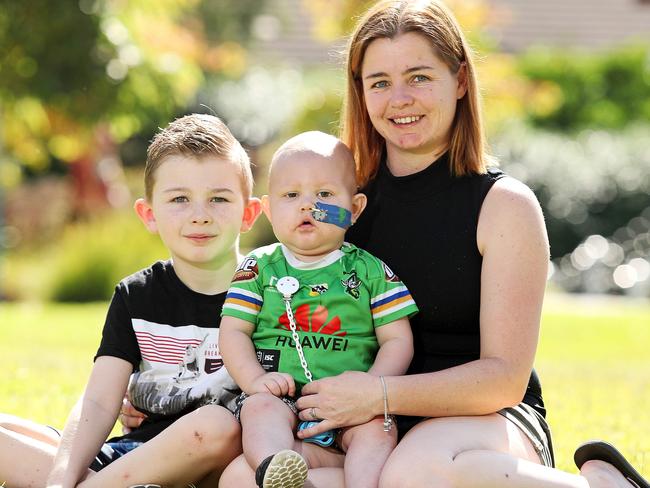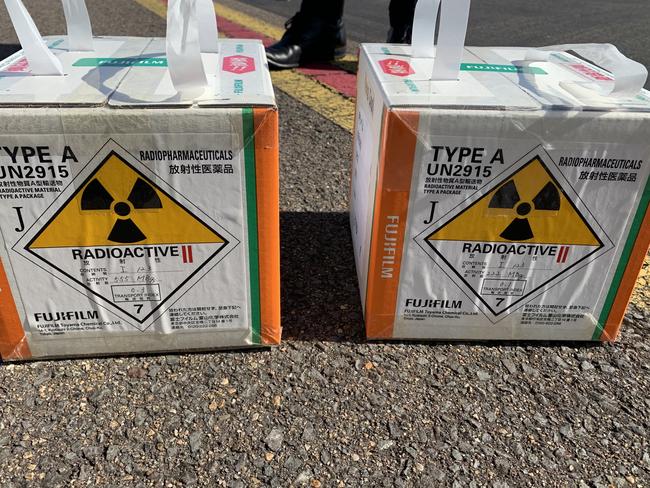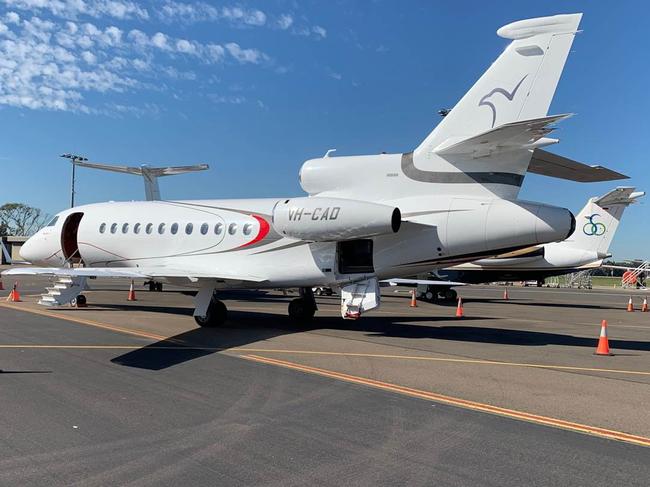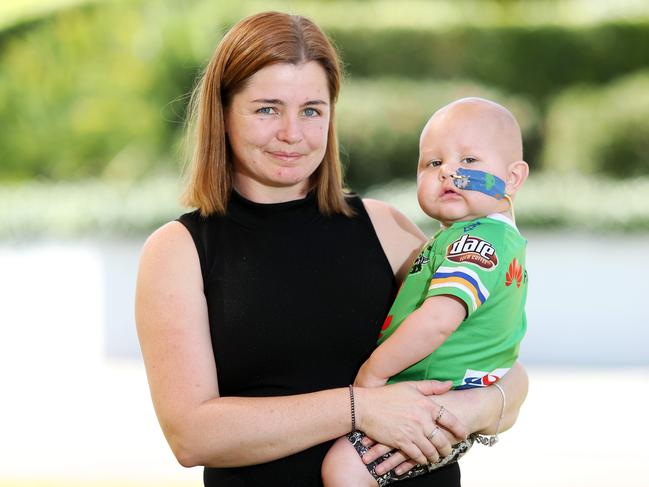Plane chartered to bring vital medicine from Japan to Australia
With flights grounded and international airports closed because of the coronavirus pandemic, ANTSO has been forced to charter a private plane to bring much needed nuclear medicine to Sydney for kids with high-risk cancers. For toddler, Logan Delaney it is literally a race against time.
NSW Coronavirus News
Don't miss out on the headlines from NSW Coronavirus News. Followed categories will be added to My News.
A mercy mission is being planned to collect desperately-needed nuclear medicine used to treat children with high-risk cancers across Australia.
Organised by the Australian Nuclear Science and Technology Organisation (ANSTO), the $100,000 emergency operation will involve a carefully choreographed flight plan which will start in Japan, where the radioisotope is made as early as next week.
With the radioisotope “dying” within 33 hours of being manufactured, the race will be on to fly it to Sydney, where waiting regional planes will transport the delicate cargo to interstate hospitals.

The radioisotope — Iodine 123 (I123mIBG) — is relied upon by oncologists to show up cancers such as neuroblastoma, which are commonly found in children.
MORE NEWS:
COVID-19 back to school: All you need to know
What life will be like when we start socialising again
After an injection, both the primary tumour and its spread can be seen, allowing for a more targeted treatment.
At any one time, about a dozen or so patients rely on the radioisotope for their diagnosis or ongoing treatment, with the vast majority being children.

The grounding of commercial planes and closing of international borders in the global coronavirus pandemic has seriously disrupted supplies of the radioisotope.
It will be the second such flight chartered by ANSTO, with the first batch of Iodine 123 arriving in Sydney last Tuesday, before it was put on to two planes to Adelaide, Perth, Brisbane and Melbourne.
Some of the supplies were sent to Liverpool Hospital and The Children’s Hospital at Westmead, with the medicine used on two patients that night.
ANSTO has now worked out the logistics of the next Tokyo flight, set to take place late next week.
ANSTO Health general manager Ian Martin said the challenge was the clock, with the radioactivity of Iodine-123 — its usefulness to a patient – halving every 13 hours.
“We need to get the isotopes from point A to point B before they decay too much to be effective, a complex task when ‘B’ is in another hemisphere,” he said.
The Children’s Hospital at Westmead Chief Nuclear Medicine Scientist Justine Trpezanovski said the radioisotope was used on up to three children each week.

“This radioisotope is used to image children who have neuroblastoma, to either diagnose or treat the condition, or to monitor their treatment,” she said.
“We are currently consolidating our schedules to fit around the availability, which has been impacted by COVID-19.”
The Drayton-Delaney family from Parkes is among those counting on the flight to deliver the radioisotope as part of the continued treatment for 20-month-old Logan.
Logan was diagnosed with stage four high-risk neuroblastoma last year, one of the cancers the radioisotope shows up during a scan.
Mum Rose Drayton, 34, who has been self-isolating with Logan and his seven-year-old brother Jake at Ronald McDonald House Westmead, said her son had already received numerous rounds of chemotherapy, immunotherapy and two operations since the discovery of a mass on his adrenal gland at 11 months.
The treatment appeared to be working until a scan in January this year showed the cancer had returned.

With the tumours becoming unresponsive to the chemotherapy, doctors sent away cells to be analysed to determine a more targeted treatment for the toddler.
“They give him an injection the day before the scan,” Ms Drayton said.
“When they do the scan, the areas where the cancer has spread light up. Without the scans, we’d be in the dark.
“We are so grateful that everyone is doing what they can so kids like Logan can have the treatment they need to continue.”
Ms Drayton said the family was hoping a new cancer-specific chemotherapy will eradicate the cancer to allow for Logan to undergo lifesaving stem cell transplant.
